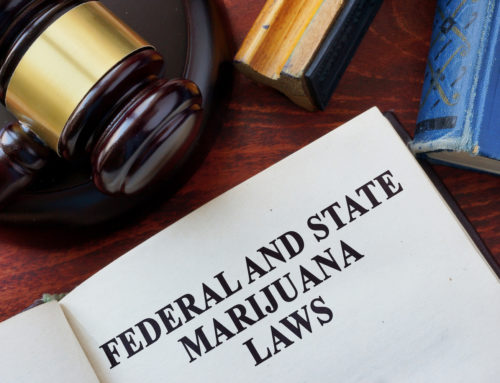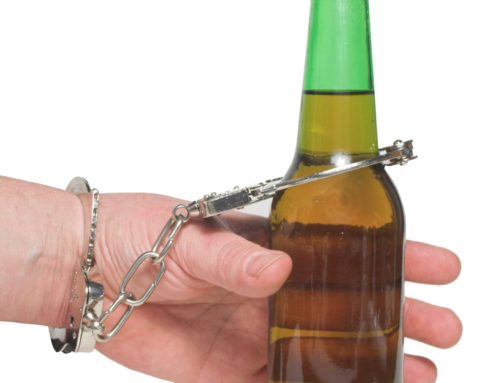 Defendant California Criminal Cases Involving Informants
Defendant California Criminal Cases Involving Informants
Sometimes when arrested for a crime in California, it is quite common for police to use confidential and non-confidential informants when conducting a criminal investigation. Certain legal issues arise when an arrest is made and charges are filed against someone accused of a crime based on the use of a non-confidential informant. In many instances an informant may receive money in order to act on behalf of law enforcement. This can result in felony charges under the California Health & Safety Code including but limited to 11352(a) the sale, transportation or offer to sell cocaine; 11351.5 possession for sale or 11378 possession for sale of methamphetamine. The typical scenario is when police utilize a paid informant to engage in an illegal transaction with someone, such the purchase of drugs, controlled substances or other contraband. This type of law enforcement practice has been determining to be lawful and constitutional. However, this can still raise some serious constitutional issues in defending such a case.
- California Criminal Defendants Constitutional Rights Regarding Informants
Under the 6th Amendment of the United States Constitution in all criminal prosecutions the accused has the right to confront and cross examination witnesses against him or her. This raises significant issues when police seek to prevent disclosure of an informants identity and background. How does someone accused of a crime confront or cross examine that person who’s identity and background is a secret?
An attorney who represents someone in this situation should immediately request from the prosecution information under Evidence Code 1054.1 which requires the prosecutor to disclose certain information about witnesses such as their criminal history. The following information should be sought:
- Full and complete identification and contact information (specific and particular enough so that defense investigators may locate and interview) of the “non-confidential informant” listed by police officers in the police report;
- Any audio or video recordings of the preparation of the informant for the task;
- the basis and relationship, if any, between the non-confidential informant and defendant;
- when the non-confidential informant had come into contact with defendant;
- whether the non-confidential informant witnessed any events relevant to the prosecution of defendant.;
- did the non-confidential informant personally observe the facts told to the police or learn by second hand;
- did the non-confidential informant have a history of assisting the police;
- did the non-confidential informant have a history of proven reliability;
- information regarding and weather the non-confidential informant was utilized in other cases;
- whether the non-confidential informant was functioning under “quid pro quo”; for payment of money or for leniency on other cases or matters.
- whether any promises were made to the non-confidential informant.
- Any record of criminal arrests or convictions (whether for felonies or misdemeanors) of any witness to be called to testify against the defendant including records of arrests and/or convictions of the victims or witnesses including but not limited to Jose Zamora. (Penal Code sections 1054.1(e), 1054(e);Peoplev. Lang (1989) 49 Cal.3d 991; People v. Harris (1989) 47 Cal.3d 1047; See People v. Pinholster(1992) 1 Cal.4th 865, 938-939; People v. Pensinger (1991) 52 Cal.3d 1210, 1271.)
The United States Supreme Court has dealt with this issue. “When an informer is a material witness on the issue of guilt, the People must disclose his identity or incur a dismissal. (Roviaro v. United States (1957) 353 U.S. 53
Further, as explained in by the California Supreme Court in Twiggs v. Superior Court (1983) 34 Cal.3d 360, 365-366, where:
“through police tactics or happenstance, the informer becomes a material witness, the police should make such inquiries and arrangements as are reasonably necessary to enable the prosecution and defense to locate him.” (Id., at p. 852, 83 Cal.Rptr. 586, 464 P.2d 42, fn. omitted.) Moreover, the duty to disclose arises irrespective of the defendant’s ability to obtain the information through his own efforts, because the prosecution knows from the outset whether the informer is a material witness, and the prosecution has greater investigatory resources and superior knowledge *366 of and contacts with the informer. (Eleazer v. Superior Court, supra, 1 Cal.3d at p. 853–854, 83 Cal.Rptr. 586, 464 P.2d 42.) (Id.)
- What Happens if the Prosecution fails to Disclose Information Regarding Informants in a California Criminal Case
Ultimately the Prosecution must disclose the requested information or the case should be dismissed. (See People v. Hobbs 7 Cal.4th 948, 959-961.) In many instances when the proper Motions are filed and a vigorous defense is mounted, a favorable resolution of a criminal case can be reached. This can take the form of a dismissal of the charges or a plea to a lesser crime that results in probation and no jail. An attorney must first determine whether an informant is confidential and whether the prosecutor has a duty to reveal the identity of the confidential informant. This determination should be made by an experienced California criminal defense lawyer with knowledge of both California statutory law and Constitutional law.
If you or a loved one is charged with a crime in California whether it be a misdemeanor or felony, you should always consult with a seasoned California criminal lawyer to determine your rights and the best defense to a criminal prosecution.





